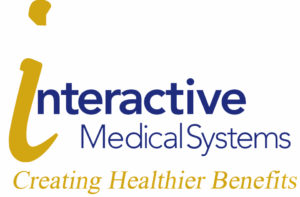Health Benefits Account Options
Home » Members » Consumer Accounts » Account Options
Health Care FSA
A Flexible Spending Account (FSA) is a program that the Federal Government allows your employer to sponsor. With a FSA, you save on a wide variety of everyday medical, dental, and vision expenses. It’ a TAX BREAK that’ simple to use and works for all eligible employees. You’re going to have these expenses anyway, so why pay more in taxes than you have to? Your contributions to a FSA are deducted from your salary BEFORE taxes. This allows you (the employee) to save federal, state and social security taxes on the money you use to pay for eligible unreimbursed healthcare expenses for you and your eligible dependents, which will increase your take home pay.
Dependent Care FSA
A Dependent Day Care Flexible Spending Account (DCFSA) can be used to reimburse daycare services provided to your children under age 13, as well as for an incapacitated child, parent or spouse. You are eligible if you are a single working parent, you have a working spouse, your spouse is a full-time student for at least five months during the plan year while you are working (refer to the IRS earned income limits for specific contribution levels), or your child, spouse or dependent parent is disabled and unable to provide for his or her own care. Your contributions to a DCFSA are deducted from your salary BEFORE taxes. This allows you (the employee) to save federal, state and social security taxes on the money you use to pay for eligible day care expenses for your eligible dependents, which will increase your take home pay.
Health Savings Account (HSA)
A Health Savings Account (HSA) enables you to save, invest and spend funds for qualified medical expenses on a tax-advantaged basis. Unused funds roll over from year to year and continue to grow tax-free. Contributing funds lowers your taxable income, allowing you to build a “nest egg” for future healthcare expenses. Contributions to your HSA may be made by you, your employer or anyone else; however, the preferred tax treatment will only be realized by you.
To be eligible to open and contribute to an HSA, you must meet all of the criteria, defined by the IRS. Because you have to be enrolled in a High Deductible Health Plan, you do not have to submit claims or wait to be reimbursed for medical expenses. With your HSA, accessing your funds to pay for qualified medical expenses is simple and tax-free. The only time you may pay taxes or penalties on your HSA funds is if you make a non-eligible purchase or if you contribute more than the maximum contribution limit. However, both circumstances can be corrected free of tax penalties by April 15 of the following calendar year.
Health Reimbursement Account (HRA)
A Health Reimbursement Account (HRA) is an employer-provided medical reimbursement account. By implementing an HRA with an employer sponsored health plan, employers and members enjoy savings through lower premiums and utilization. With an HRA, the employer funds an account from which the employee is reimbursed for qualified medical expenses. Only the employer can contribute to the HRA. Reimbursements from the HRA are not taxed to the employee and are deductible by the employer.
HRAs provide plan design flexibility and each employer’s plan may be unique. Employees should reference their employer’s HRA Plan Documents in order to better understand their employer’s HRA plan design.
